
IN CONVERSATION WITH SOPHIE THATCHER
Sophie Thatcher, best known for her role in the critically acclaimed series…
Photography by Jason Renaud; Interview by Louise Garier
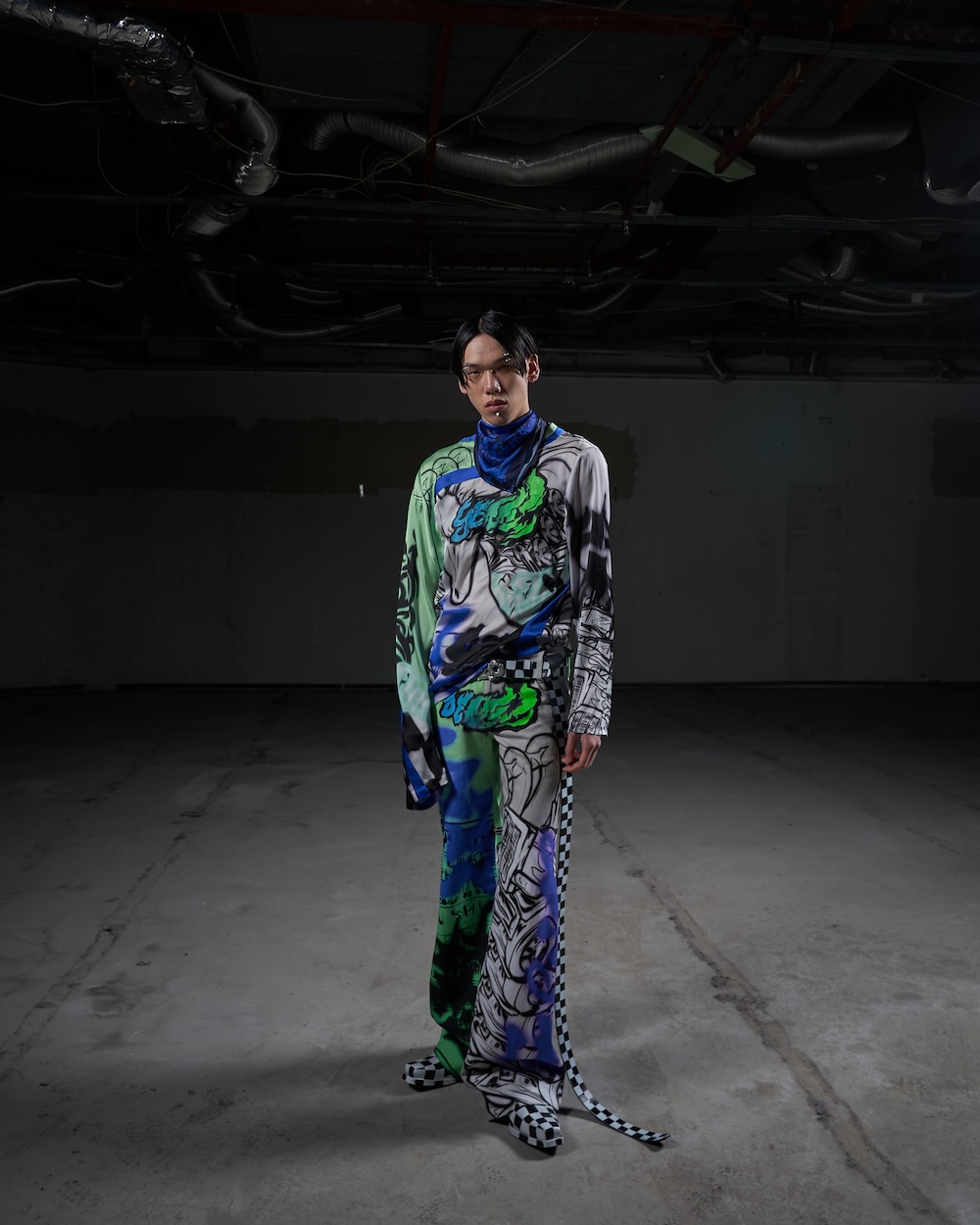
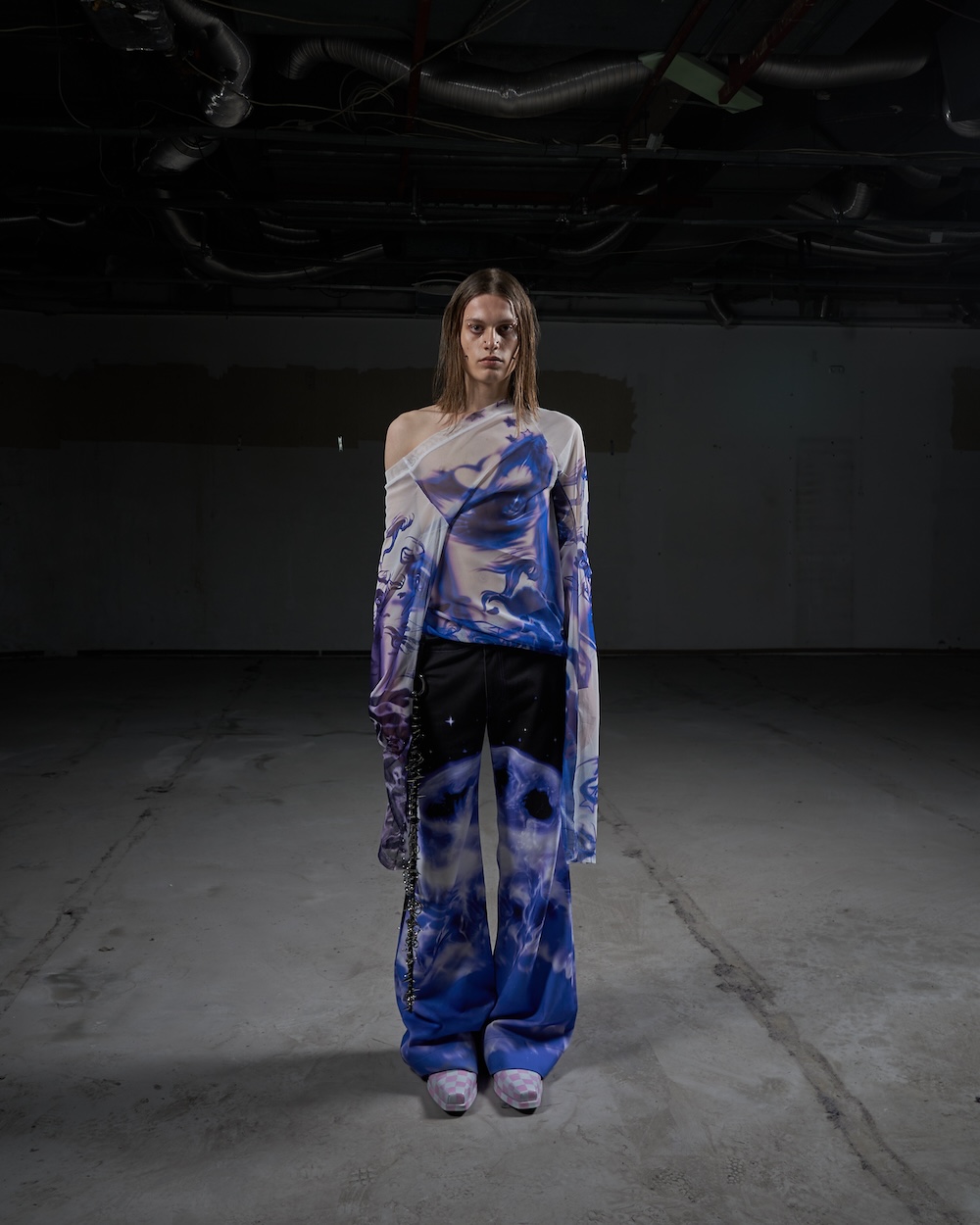
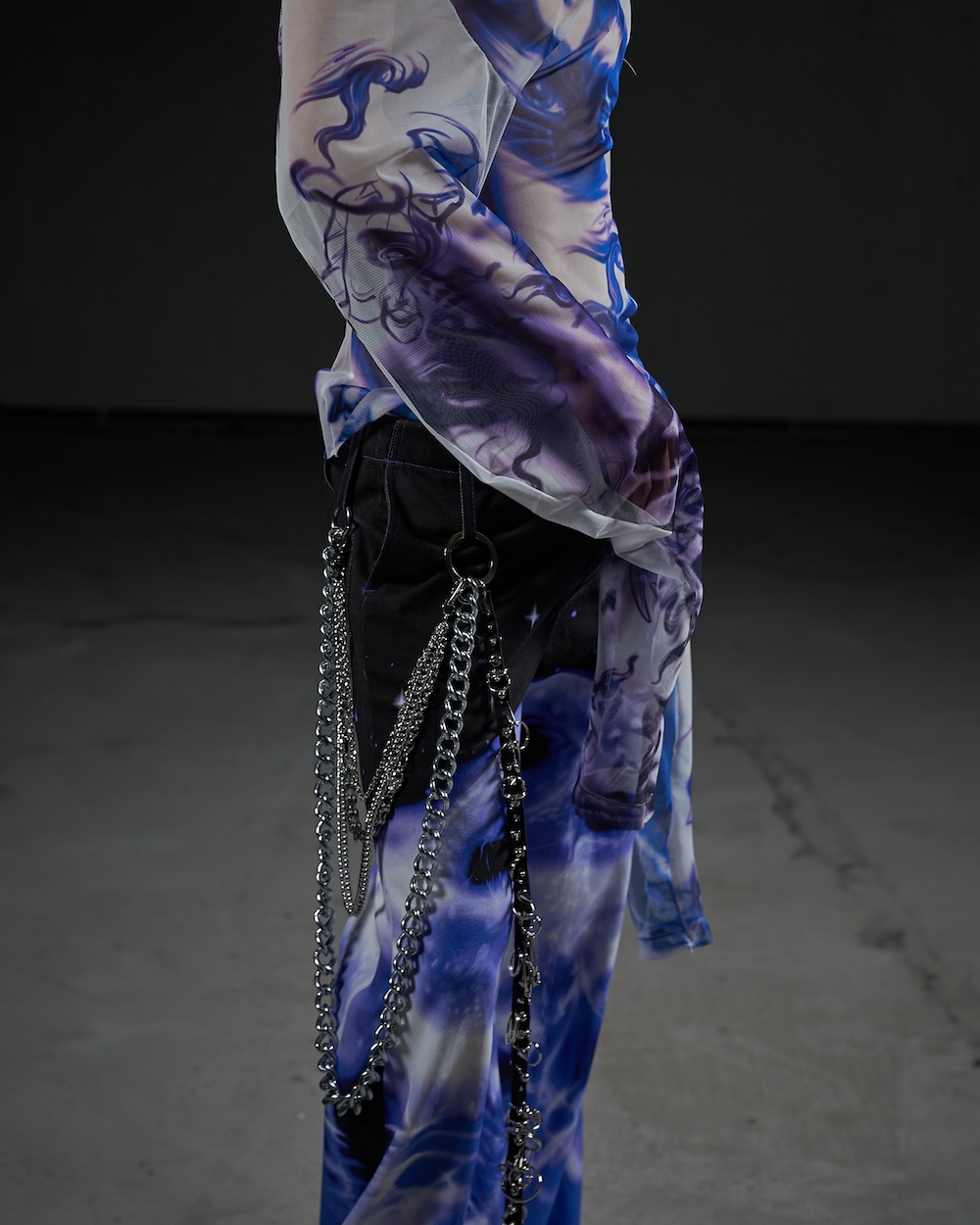
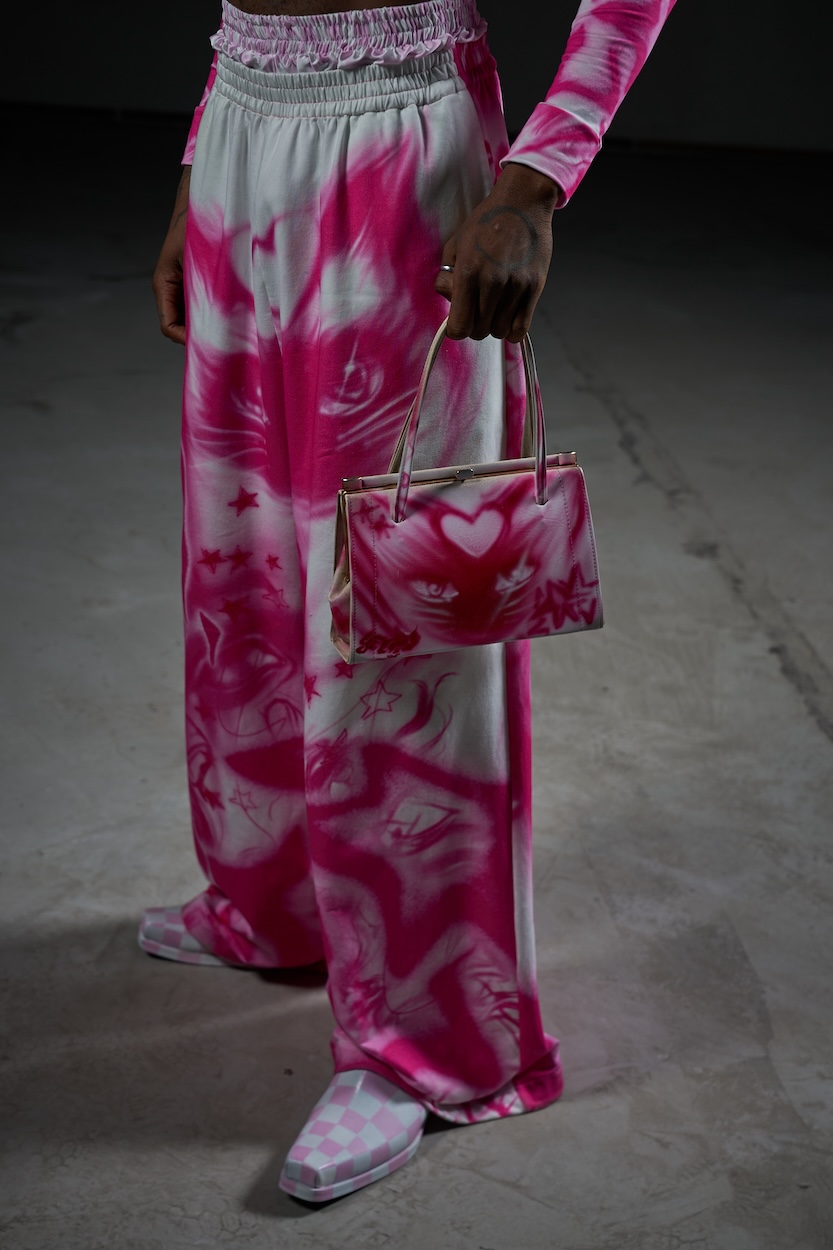
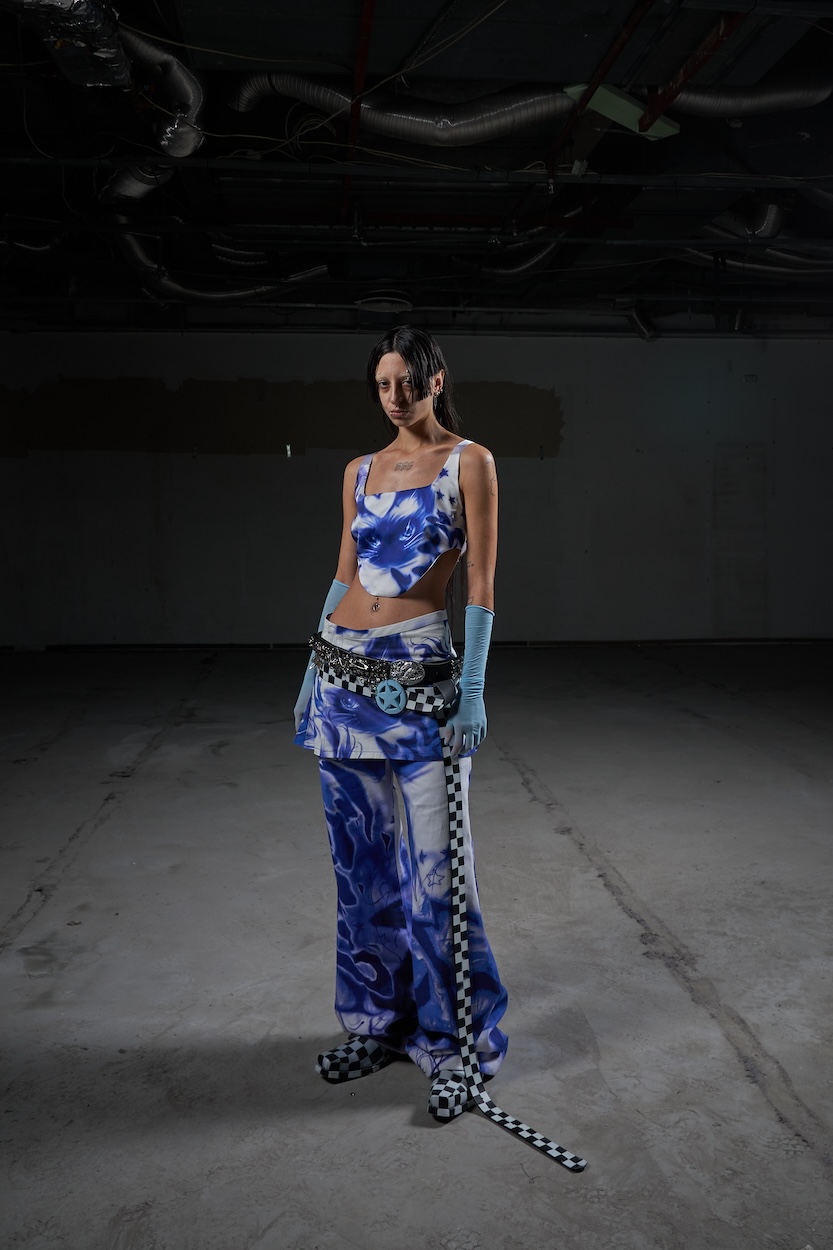
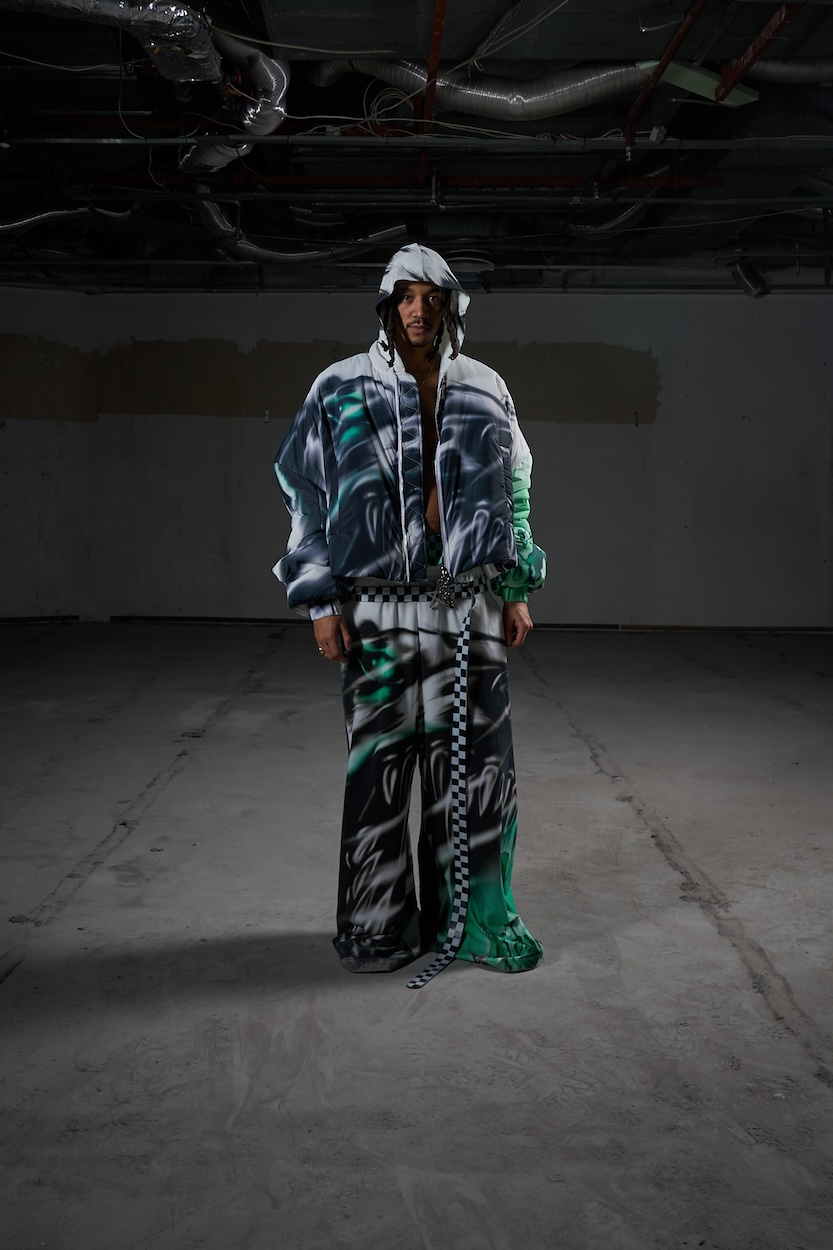
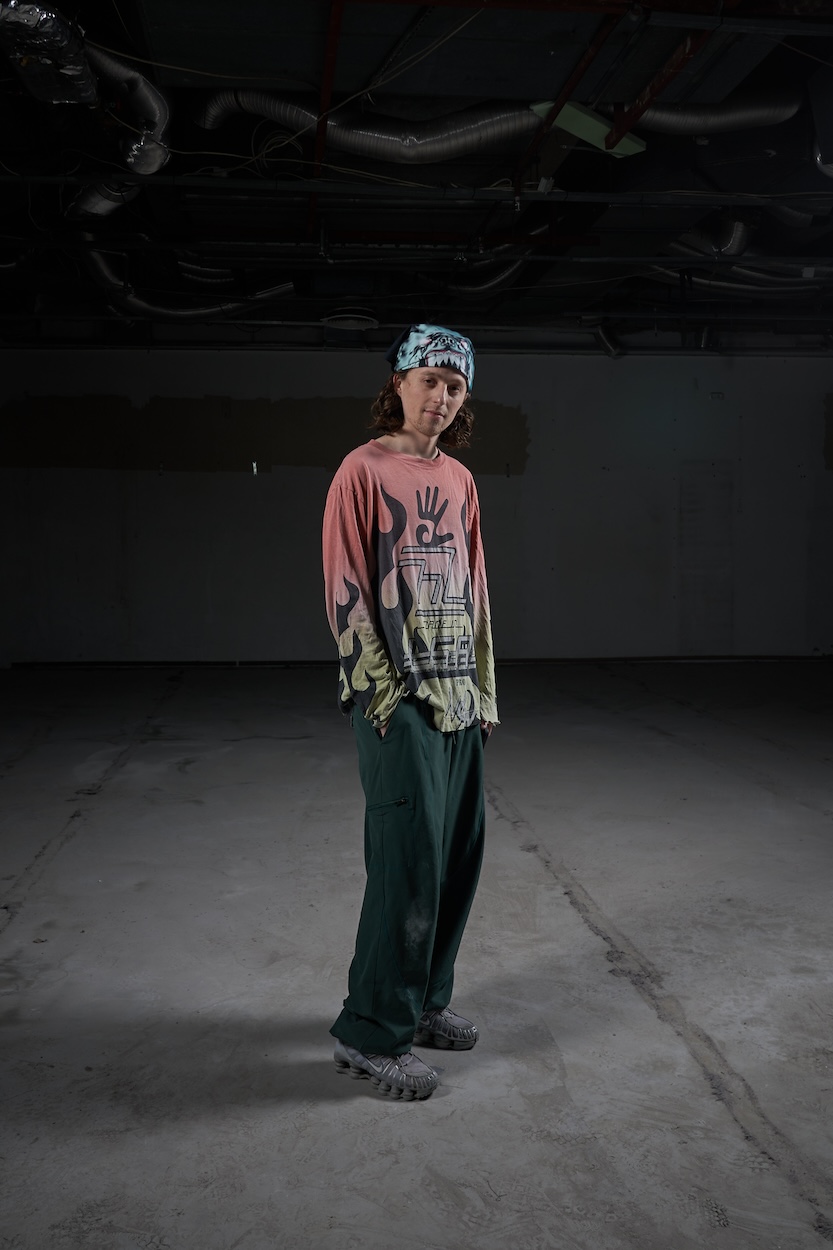
When I stroll through the streets of the coolest cities of the world and see someone wearing pieces by Gerrit Jacob, I know they are Gerrit Jacob’s designs. If I’m in the crowd at a 21Savage concert in Berlin and he comes out in a striking suit, I immediately know whose pieces the rapper is wearing. The young designer from Berlin has successfully carved out his own aesthetic, and it’s not just popular among the biggest stars in the music industry. During Berlin Fashion Week, Gerrit Jacob presented his latest collection, “Made in Heaven,” as part of the new Reference Studios project, “Intervention.” The title “Made in Heaven” is a tribute to the 1990s photographic series by Jeff Koons and Cicciolina, evoking the nostalgic kitsch often found in dime-store novels. Hosted in a former department store—a true gem of post-modernist architecture located in the heart of Berlin-Neukölln. There was dark, vibrant music playing, and guests stood in front of a wall of long silver tinsel. The models came out in the dark in front of the wall, and then, fittingly to the music, they were illuminated by flashing lights. The entire presentation lasted less than 10 minutes, but it didn’t need more to captivate the audience with his colorful creations.
A few days before Berlin Fashion Week, Numéro Berlin spoke with Gerrit Jacob about his beginnings in fashion, first milestones, how Berlin has influenced his work and more.
I started drawing around 12 or 13 and my interest in fashion really came through drawing. I was kind of known for always drawing naked ladies and then at some point I started drawing them with clothes on. I’d say around 14 or 15 I realised that it was something that was more viable as a career path than fine art or Illustration.
This collection is called Made in Heaven, taking its name from Cicciolina and Jeff Koons photographic series. Every season I love finding different ways to incorporate kitsch into what I do and this season was created to invoke the messiness and awkwardness of the Teenage bedroom. With every collection I look to challenge myself and I finally managed to find a way to that messy sketchy drawing style that I love into the prints in a way that felt elevated and considered. We focussed more on creating something for the hotties, mini skirts, corset tops and baby tees alongside the slouchy oversized shapes that I will always love.
I’m not someone who daydreams about having fashion shows. I do enjoy the idea of theatrics and being able to put on a show in a general sense. Reference asked me to take part in this and obviously there is a trust and relationship there that made me feel comfortable to agree to partake. I think the local fashion week has a tendency to be a bit commercial so this is an exciting development.
“In my opinion the best fashion is created when technical ability meets a strong point of view and that technical ability, and how it can be used to convey a narrative, is something that you can only learn by working for people you admire.”
I did not sit there and one day decided that this is going to be something I was going to build a brand around. It honestly just kind of happened. I had some funfair research imagery and looked into making one look based on that and then it just kind of morphed into what it is now.
I could write a whole book about this but in the end of the day there is a process to follow with everything and even the most creative and outrageous ideas can be executed well if the process is followed. In my opinion the best fashion is created when technical ability meets a strong point of view and that technical ability, and how it can be used to convey a narrative, is something that you can only learn by working for people you admire. I also would like to point out Martine in somehow that I admire for always staying true to herself, always centring community and someone I consider a role model when it comes to creating a studio environment for the people around me.
Somehow contributing or being a part of pop culture, even a small part, has been very satisfying and I am very grateful for every opportunity that I have been given.
Berlin is an amazing and vibrant city with a very high quality of life. I am surrounded by friends and family that I love, there is plenty of amazing food, culture and art. Though I will say that the German and Berlin city governments extremely xenophobic rhetoric around Muslim people and advocacy for Palestinian civilians has been very worrying.
“Rihanna has always been and will always be the baddest there is.”
I just design the clothes that I like and that the people around me like. I find the binary system of fashion weeks and split buying departments very constricting and frustrating.
Rihanna has always been and will always be the baddest there is.
I think all authentic and compelling fashion is centred around community and genuine creative expression. I am starting to realise that the commercial demands can be very overpowering and it is not always easy to say no money and I’m not always in a position to do so but the only thing I can do in my position.
My mum.
Making lots of money and having less projects cancelled

Sophie Thatcher, best known for her role in the critically acclaimed series…
Photography by Jason Renaud; Interview by Louise Garier

"We have to create something that has a purpose and is useful. And not forced by the…
Interview Carolin Desiree Becker

Supporting Sydney’s cultural scene: This month’s collaboration reminds us of happy…
Interview by Sina Braetz